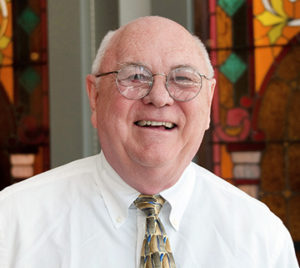
Readings
First Reading: Leviticus 19:1-2, 17-18
Responsorial Psalm 103:1-2, 3-4, 8, 10, 12-13
Second Reading: 1 Corinthians 3:16-23
Gospel: Matthew 5:38-48
Whispers in the Temple of the Holy Spirit
My friend Judy Logue has a wonderful title for her book on forgiveness: Forgiving the People You Love to Hate.1 Forgiving is not easy, especially those who have hurt and damaged us deeply, or those whose actions have been so outrageous that forgiving them would mean losing our identity or dignity. Because of this, we hold back our forgiveness. We love to hate them for what they have done. There is no way we can forgive. To forgive them would not make sense.
How can we forgive the clergy, the uncles, the coaches, the neighbors, the movie producers who have abused our children, our friends’ children, countless vulnerable women and men, ourselves? How can we forgive terrorists who kill innocent people in shopping malls, people celebrating weddings, innocent people taking the bus home from work? How can we forgive gunmen (they are almost always men) who kill people in synagogues, in mosques, at music concerts, in kindergartens and schools? We see hatred in the deadlock of our national political system, with President Trump vilifying anyone who opposes him, and Nancy Pelosi publicly tearing up the text of the State of the Union address. We see hatred even in the church, with conservative Catholics breaking into a church, stealing cherished cultural objects and throwing them in the Tiber River. And more liberal Catholics raging about the actions and stances of bishops, and in these days, even Pope Francis. I often find myself caught up in such anger and hatred, and I don’t know how to get out of it. There really are people I love to hate!
This is why today’s readings are—to say the least—challenging, disturbing, unrealistic in the “real world,” nonsensical. They call us, however, to what Ugandan theologian Emmanuel Katongole, speaks of as “another logic,” a logic that blatantly contradicts the “wisdom of this world” as our second reading puts it. They call us beyond hatred (turning the other cheek), revenge (“an eye for an eye”!), hating our enemies (loving and praying for them), cherishing a grudge (forgiving the people you love to hate). Most difficult of all, our readings call us to be like God—being holy like God, being perfect like God—“merciful and gracious … abounding in kindness,” as we pray in our responsorial psalm.
Is this possible? I’m really tempted to say no. But something deep in me tells me that we are at the heart of the gospel here, right at the center of what it means to be Christian. Something tells me that if we can’t forgive the people we love to hate, if we continue to cherish that grudge, we will be burdened and embittered for the rest of our lives, and deprived of the abundant life that faith in Jesus offers. Something tells me that it is OK to be angry at injustice, and selfishness, and abusive behavior, at political incivility, at clericalism and patriarchy. Something tells me that there are other, better, more Godly ways of resisting evil than hatred and revenge. Something tells me that, if we are open to it, God will find a way to enlighten our minds and persuade us to soften our hearts. Something tells me that if we take one or two small steps toward forgiveness—even if only acknowledging our desire to try to forgive—we have at least begun the journey.
Is this “something deep in me” the Holy Spirit, whispering in her temple? Is this what it means to become a fool for the sake of the gospel? Is this what it really means to be wise?
Rev. Stephen Bevans, SVD
Louis J. Luzbetak, SVD Professor of Mission and Culture, Emeritus
1Judy Logue, Forgiving the People You Love to Hate (Ligouri, 1997).